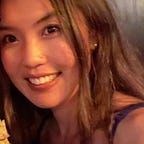Harvard in Tech: Julie Bell, COO of Emergence Capital, on the importance of focus, authenticity, and finding what gives you energy
I spoke with Julie Bell, Chief Operating Officer at Emergence Capital, a venture capital firm focused on early stage enterprise companies.
After graduating college, Julie joined Bain as an Associate Consultant. After a few years there, she realized she had an itch to go do and not just advise, so she jumped into private equity and growth equity investing. She loved building businesses and teams and working with founders. After many years in the growth equity investing and operating world, Bain approached her with an opportunity to help run Bain in San Francisco. She decided to join as Executive Vice President focused on people and operations, working in a COO-type role. She enjoyed taking care of people, figuring out business strategy, and being the connective tissue between people in the company.
After 4 years in her role there, Julie was introduced to Gordon Ritter, a Founder and General Partner at Emergence, by a mutual friend. After many conversations, Julie accepted the role as Emergence’s first COO. Despite her connection to Bain, she felt the role combined all the aspects of her career journey from operating to developing people, and was incredibly energized by the firm’s values. As she embarks on the next chapter of her career, she is excited to lead the firm across fund strategy, people, as well as support the Platform Team and portfolio companies as they build companies that change the way the world works.
Julie shared her advice for finding and doubling down on strengths, staying organized and productive, leading teams, and taking the long view.
Reflect on what gives you energy. When Julie first started her career at Bain as an Associate Consultant, she learned to be good at a lot of things and to adapt depending on the ever evolving needs of clients. She loved that she could do a lot, but she soon realized that just because she could do everything, it didn’t mean she should. So she spent time thinking about what gave her energy and what motivated her. She realized that she felt the happiest when she was helping other people be their best. She loved solving problems and making things better, which is what led her to the COO role. Julie highlighted the importance of holding a high premium on your time. She wants to love going to work and ensure that each role she takes on aligns fully with what gives her energy and makes her happy.
Ruthlessly prioritize. When asked how she stays organized and productive, Julie notes: it’s crucial to have a relentless focus on what matters and what is going to actually move the needle, both in your own life and your work with others. Ahead of meetings, Julie swiftly aligns everyone on what they really need to discuss. What could be addressed via email? What work can be done in advance to make the meeting more efficient and focused on what truly matters? She keeps an organized to-do list. After each meeting, she takes time to reflect on the key takeaways, drawing signals out from the noise and driving decisions forward.
Share the right context. When Julie works with her team members, she doesn’t just delegate. Rather, she shares the full context of each task so her team fully understands not just the what, but also the why. With the right context, people feel more energized and impactful in their work and create better output that is tailored to the context.
Take the long view. When asked about her mentors, Julie highlights the impact Neil Cherry at Bain had on her career. She met him when she was first at Bain shortly after graduating college. He taught her tons about caring for people, doing the right thing for business, and having the right time horizon and perspective. She learned that careers are a marathon, not a sprint.
Build promoters. Another core piece of advice Neil gave Julie is to focus on building promoters. The business world is small, and the road is long. You never know if and when you’ll work together with your current colleagues again. In your interactions, be mindful about how you treat others. Make sure people will rave about you and want to work with you again.
Focus on the people. When asked about her advice for her Harvard self and younger self, Julie shares the importance of relationships. Ultimately, it’s all about the people. When you evaluate risks or new opportunities, focus on the people. Surround yourself with incredible people. When you’re in a new school or company, get to know everyone there and stay in touch. If you have the right people around you, the rest will follow.
Be authentic. Leadership isn’t always about knowing the answer, but rather it’s about listening and making decisions when you need to. Some of the wisest people are the first to say “I don’t know.” Don’t fake it. The more confident you feel, the more comfortable you feel saying “I don’t know, but I can figure it out.” Leadership is not about immediately having the right solutions, but rather being able to formulate the right method and bringing together the right people to solve a problem. When faced with a challenge, Julie says: “We’ll make it work. I don’t know how, but I know we will.”
Read more about Julie Bell in her latest blog.
